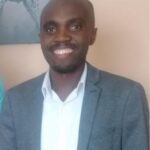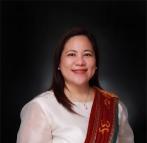
Our team
Canada
-

Mary Wiktorowicz, PhD
Prof. Mary Wiktorowicz is a professor, associate director of the Dahdaleh Institute for Global Health Research, and member of the Global One Health Network (Global 1HN) and WHO Collaborating Centre on the Global Governance of AMR. Her research on the design of comparative frameworks to evaluate models of global health governance has appeared in Social Science & Medicine, Globalization and Health, and Evidence and Policy. She will coordinate the research and lead the analysis of transnational governance models and comparison of national models to support antibiotic stewardship. She has experience leading research collaborations and strong connections with AMR researchers and knowledge users.
-

Chloe Clifford Astbury, PhD
Chloe Clifford Astbury is a postdoctoral researcher in the School of Global Health at York University, interested in the transition to a healthier, fairer and more sustainable food system through integrated food system policy across food production, processing, trade and public health. Her current work focuses on the application of systems thinking to the prevention of both communicable and non-communicable diseases.
-

Arne Ruckert, PhD
Arne Ruckert is Director of Policy at the Global Strategy Lab’s AMR Policy Accelerator, and Research Coordinator of the Global One Health Network, at the University of Ottawa. He is also the Associate Director of the OMNI-REUNIS Infectious Disease Modeling Network, at York University.
His work revolves around social determinants of health and health equity issues, and his main areas of research include the international financial institutions (IFIs) and the international aid architecture, financial crises and health equity, global health governance and health diplomacy, and COVID-19 and infectious disease modelling. Arne has worked as a policy consultant for various development organizations (including the North-South Institute, CCIC, the Halifax Initiative), international organizations (WHO), and the Canadian government (Health Canada). He is also a part-time Professor teaching courses in the School of Political Studies and the School of International Development and Global Studies (SIDGS) at the University of Ottawa.
-

Cécile Aenaeshaenslin, DVM, PhD
Cécile Aenishaenslin is a professor in the department of pathology and microbiology in the Faculty of Veterinary Medicine at the Université de Montréal. She is a veterinarian who holds a master’s in international studies (2009) and a doctorate in epidemiology (2015, Université de Montréal).
She also held a postdoctoral fellowship at the Centre for Evaluative Health Research at McGill University (2018). Dr. Aenishaenslin has worked internationally for several years and with indigenous people in Canada. She co-founded the Groupe International Vétérinaire in the faculty of veterinary medicine at Université de Montréal and is doing research on the epidemiology of zoonoses as well as animal health and veterinary public health program evaluations, using the One Health approach.
-

Shital Desai, PhD
Dr. Shital Desai is an Assistant Professor in Interaction Design at the School of Arts, Media, Performance & Design and York Research Chair in Accessible Interaction Design at York University. She heads the CFI funded Social and Technological Systems (SaTS) lab where she and her team engages in research that addresses issues that focus on UN Sustainable Development Goals using Design Research methods, Human Centred Design, Systems Design and Speculative Design approaches. To that extent, she cocreates accessible technologies, services and governance policies for marginalised demographics and global health.
Shital is a member of the WHO Dementia Knowledge Exchange peer review network where she shares her expert knowledge on dementia and technology in strengthening policies, service planning and health and social care systems for dementia. She is passionate about training students in Systems Design and Design thinking methods to address societal issues around accessibility and inclusivity. Shital is the recipient of several awards and grants, including 2021-22 AMPD Research award, Petro Canada Young Innovator Award and tri-council grants – SSHRC, CIHR and NSERC. She received NSERC Discovery grant in 2021 to design and develop adaptive assistive technologies for people with dementia.
-

Tarra L Penney, PhD
Dr Penney is a population health scientist focused on the prevention of disease at the global level. She is an assistant professor of Global Food Systems and Policy Research, an investigator with the Global Strategy Lab and a member of the Dahdaleh institute for Global Health Research at York University. She completed her Postdoctoral training and PhD in preventive medicine and epidemiology at the MRC Epidemiology Unit, University of Cambridge, UK.
Working with national and international organizations, her research utilizes systems thinking and multiple methods to generate observational and evaluative evidence to understand the context and impact of globalization and food systems on human and planetary health. Her work seeks to support evidence based global health policy development that can tackle some of our biggest global challenges including food insecurity, emergence of zoonoses, anti-microbial resistance and the related consequences of climate change.
-

A.M. Viens, PhD
A.M. Viens is the Inaugural Director of the School of Global Health and York Research Chair in Population Health Ethics and Law at York University. He has degrees in philosophy and law from the Universities of Toronto, Oxford, and London. His research specialization focuses on population health (i.e., public health and global health) ethics and law, with a particular interest in demonstrating how philosophical analysis, legal epidemiology, and regulatory theory should shape how we approach different issues within global health policy, practice, and research (especially infectious diseases, disasters and emergencies, and health promotion). His latest book is Public Health Law: Ethics, Governance, and Regulation, co-authored with John Coggon and Keith Syrett (Routledge, 2017). He is a member of the WHO Collaboration Centre on the Global Governance of Antimicrobial Resistance. He is also an Honorary Member of the UK Faculty of Public Health, a Fellow of the Royal Society of Public Health, and Editor-in-Chief of Health Care Analysis.
-

Michelle Wyndham-West, PhD
Michelle Wyndham-West, Ph.D., is the Graduate Program Director of the Design for Health and Inclusive Design programs and an Assistant Professor in the Faculty of Design at OCADU University. Michelle is a critically applied medical anthropologist with graduate degrees in socio-cultural and medical anthropology from the University of Toronto and York University respectively. Michelle teaches in the areas of health policy, medical anthropology, and research methodologies and has received undergraduate and graduate teaching awards from OCAD University. Michelle’s research focuses on health equity, gender, public policy systems, and critical co-design methodologies. This research is supported by CIHR and SSHRC funding. Additionally, Michelle has published in international journals, including Evidence & Policy, BMJ Open, and Design for Health, and presents research regularly at international conferences, such as at the Society for Applied Anthropology annual meeting. Making Gender: Big Pharma, HPV Vaccine Policy, and Women’s Ontological Decision-Making is her first book and will be published by the University of Toronto Press in summer 2023.
-

Olivier Kambere Kavulikirwa, DVM, MSc, PhD(c)
Olivier Kambere Kavulikirwa is a PhD student in Global Health at the University of Montréal School of Public Health (ESPUM) in Canada, jointly affiliated with the Department of Public Health Sciences at the University of Liège in Belgium. In the DESIGN project, he is exploring the impact of antimicrobial stewardship policies and programmes using the One Health approach.
He is a One Health specialist with a Specialized Master’s in Integrated Management of Health Risks from the University of Liège, the University of Namur, and the Université Libre de Bruxelles, Belgium; and holds a Doctor of Veterinary Medicine from the Catholic University of Graben in Butembo, Democratic Republic of the Congo, as well as a professional certificate in Innovation Management and Sustainable Health from Karolinska Institute, Sweeden.
Olivier Kambere Kavulikirwa gained extensive experience in health emergency management and humanitarian intervention, notably during the complex Ebola epidemic in the Democratic Republic of the Congo between 2018 and 2020. His interests include global health issues like antimicrobial resistance, zoonoses, food safety, and pandemic preparedness, as well as implementation science. Since 2015, Olivier has been serving at the Catholic University of Graben in Butembo (UCG) as a teaching and research assistant.
France
-

Marion Bordier, PhD
Dr Marion Bordier has 20 years of experience in the field of veterinary public health. She first worked as a deputy director in a veterinary laboratory where she was in charge of the animal health and food safety departments and then at the French Ministry of Agriculture where she coordinated the surveillance system for food and feed. After completed her PhD on the application of the One Health concept to the surveillance of health hazards (including AMR) at the human-animal-environment interface, she joined the CIRAD Astre unit in 2019. Based in Senegal, she is in charge of supporting all animal health stakeholders (authorities, farmers, technical institutes, etc.) in the development and implementation of animal disease prevention and control strategies. She is particularly interested in systemic approaches involving participatory methods. During her PhD, she developed methodological frameworks and tools to support the co-construction of integrated surveillance systems and the evaluation of these systems. She applied them to the case of antimicrobial resistance in Vietnam. From 2018, she is part of the JPIAMR network “CoEvalAMR” that focuses on developing methods and tools to evaluate integrated surveillance of AMR, unclosing its governance and impacts.
In the DESIGN project, she is leading the scoping reviews to identify effective AMR surveillance systems and stewardship interventions informed by the One Health approach (WP2). She will also coordinate activities conducted by the Cirad team in support of the Senegalese case studies (WP1 and WP4).
-

Léo Delpy, PhD
Léo is a professor in the Research Center in Economics and Sociology (Clersé) at the University of Lille.
He completed his postdoctoral training at the French Agricultural Research Centre for International Development (CIRAD), focusing on developing surveillance systems to manage antibiotic resistance following a One Health approach.
He completed his PhD in economics at the University of Bordeaux, focusing on social protection in sub-Saharan Africa. During his PhD, he studied the development of social protection policies and egocentric support networks in sub-Saharan Africa (Madagascar, Côte d’Ivoire, Sénégal).
He has three main research interests: social protection policies, One Health policies, and informal social protection mechanisms. Léo uses social network analysis to evaluate national public policies and egocentric networks in developing countries.
He has also collaborated with several international organizations such as the World Bank, UNICEF and the European Union in Madagascar and Côte d’Ivoire.
Hungary
-

Ria Benko, PharmD, PhD
Ria Benko is qualified as a pharmacist and received her PhD in clinical pharmacology/drug utilisation research. Currently she is an associate professor at the Institute of Clinical Pharmacy, University of Szeged and work part time as a clinical pharmacist at the university hospital. Her post graduate research career started with human pharmacokinetic studies in intensive care patients, later she turned to drug utilisation (DU) research. The focus of her DU research has been antibiotic utilisation studies using various methods, data sources and expanding from local settings to international cross national comparisons.
-

Eva Loboda, PharmD
Eva Loboda is a pharmacist working at the Institute of Clinical Pharmacy, University of Szeged. After graduating in 2016, she worked in several community pharmacies as a locum pharmacist. In 2019 she graduated as a medical translator and interpreter, in 2021 she obtained a complementary degree in legal studies.
Eva is currently working on the country-level data collection for the projects on antimicrobial resistance.
Netherlands
-

Caroline Schneeberger – van der Linden, MD, PhD, MScPH
Medical microbiologist, public health expert & PhD supervisor
-

Lotte van Heuvel, MSc
Lotte is working as a junior researcher at Nivel within the research program Infectious Diseases in Primary Care and she is a PhD student at the University of Groningen, the Netherlands. Her PhD research is about the relation between science, policy and practice in the field of AMR. Within Nivel she works on different (international) projects concerning influenza, RSV and AMR. Lotte’s background is in international public health with a focus on infectious diseases and AMR.
-

Michel Dückers, PhD
Michel Dückers is research program coordinator Disasters and Environmental Hazards. The focus of his research is on (1) safety and health effects of exposure to disasters, crises and other environmental hazards; (2) The optimal response by governments, public and private organizations, civil society and citizens before, during and after the exposure/crisis.
Michel has been involved in recent European projects aimed at optimizing the management of public health crises and vulnerability reduction, with an emphasis on topics such as health monitoring and surveillance, post-disaster mental health and psychosocial support, infectious disease threats and health care for refugees.
Michel is an advisor for national and local governments in the event of public health crises.
Since December 2020 Michel is endowed professor at the Faculty of Behavioural and Social Sciences of the University of Groningen and at ARQ Centre of Expertise for the impact of Disasters and Crises. The chair ‘Crises, Safety and Health’ has been organized in collaboration with ARQ National Psychotrauma Centre, National Institute for Public Health and the Environment (RIVM), Netherlands Institute for Health Research Services Research (Nivel) and the Netherlands Institute for Public Safety (NIPV).
Michel is visiting professor at the University of Innsbruck. -

Mandy Geise, PhD
Mandy Geise is a medical anthropologist working on diverse topics situated at the intersections of anthropology and global health. Her research interests include public health governance; the dynamics of practices and knowledge related to health, medicine and science; equity and social justice; biotechnologies; food and changing foodways; the relationship between the environment and health; infectious diseases and AMR; humanitarian aid; and sexual and reproductive health and rights. Mandy has a particular interest in participatory approaches and ensuring people’s lived experiences inform health policy and practice.
Mandy currently works in multidisciplinary teams at Nivel and the Amsterdam Institute for Global Health Research (AIGHD), where she contributes to various projects, for example to integrate social science in community engagement approaches in humanitarian action, to strengthen the contribution of the social sciences to the prevention and response to infectious disease threats and AMR (Sonar-Global), and to study the needs of young people who survived childhood cancer.
Philippines
-

Sharon Villanueva, PhD
Dr. Sharon Yvette Angelina M. Villanueva finished her B.S. Public Health degree from the College of Public Health in 1997 and later on took up her Master of Medical Science degree from the Graduate School of Medical Sciences, Kyushu University. In 2010, she also finished her PhD in Medical Sciences with a specialty in Pathological Sciences from the same institution. Dr. Villanueva is also a Post-doctoral fellow of the JST-JICA Agency (Japan Science and Technology Agency-Japan International Cooperation Agency) in partnership with Kyushu University and Chiba Institute of Science.
Dr. Villanueva is a member of different national and international societies and is a Registered Microbiologist and a Diplomate of the Philippine Academy of Microbiology.
Dr. Villanueva has numerous international publications with focus on leptospirosis seroprevalence, pathogenesis, serologic and molecular diagnosis, and vaccine production. Her other research interests are on antimicrobial resistance and kit development. She is also a technical/peer reviewer of manuscripts submitted in national and international journals as well as project proposals submitted for funding by national and international funding agencies.
-

Kathleen Chelsea Togño, MSPH Candidate
Chelsea is a research assistant with the Applied Microbiology for Health and Environment Research Group (AMHERG) in the College of Arts and Sciences at the University of the Philippines Manila. She is currently supporting the country-level data collection for the projects on pandemic prevention and antimicrobial resistance and global governance where she facilitates the recruitment and the interviews of the stakeholders. She is also involved in undergraduate to graduate-level research projects as a statistical consultant, where she addresses research team’s concerns on study designs, using different software for basic and advanced statistical analysis, and other statistical services.
Chelsea is currently completing her MS in Public Health, specializing in Biostatistics at the University of the Philippines, where her research focuses on identifying the risk factors associated with antimicrobial resistance using a multilevel model approach in the Philippines. She also completed her BS in Statistics last June 2019 at the same university. She is looking forward to applying her quantitative research skills in combination with qualitative methods to real-world problems on health and environment through a socio-behavioral research approach.
-
Senegal
-

Mamadou Ciss, PhD
Dr Mamadou Ciss holds a PhD in mathematics from the Université Européenne de Bretagne (UEB), with a focus on mathematical modelling. He currently works in multidisciplinary teams at the Institut Sénégalais de Recherches Agricoles (ISRA), where he contributes to various projects in agriculture, livestock, fisheries and agroforestry.
He specialises in (1) spatio-temporal modelling, (2) mathematical and statistical analysis and (3) one health management. Dr Mamadou Ciss has also collaborated with several international organizations such as the INRAE and Food and Agriculture Organization (FAO).
In the DESIGN project, he coordinates activities conducted by the ISRA Senegalese case study team.
-

Mouhamadou Moustapha Sow, PhD(c)
Mouhamadou Moustapha is a PhD student at the National Livestock and Veterinary Research Laboratory, focusing on developing governance systems to manage antibiotic use and resistance through a One Health approach in Senegal.
He completed his master’s degree in Agronomical and Management Sciences at the Gaston Berger University in 2022. During his degree, he was awarded a grant from AFROHUN Senegal to conduct a study focused on estimating the risk of Avian Influenza transmission in the country. He took the award for best advocacy at the World Antimicrobial Awareness Week 2022.
He has four main research interests: epidemiology in animal health, livestock development, risk management and governance of antibiotic resistance.
He has also collaborated with several international organizations on One Health projects, including the United States Agency for International Development (USAID) through the Breakthrough Action/Africa One Health University Network; the Food and Agriculture Organization (FAO); and the International Livestock Research Institute (ILRI) in Senegal.
-
